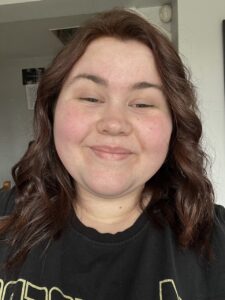Overview
The Department of English conducts research in all the main branches of our discipline: literature, creative writing, language, applied linguistics and Teaching English to Speakers of Other Languages (TESOL). We aim to support world-leading work in all these areas and to foster and develop strategic partnerships, particularly with local and national cultural organisations, to reach those who can benefit from our research.
Introduction
The Department of English has an outstanding international reputation. We conduct research in all the main branches of our discipline: literature, creative writing, language, applied linguistics and TESOL. We aim to support world-leading work in all these areas and to foster and develop strategic partnerships, particularly with local and national cultural organisations, to reach those who can benefit from our research.
Our world-leading expertise in English and related literature spans all periods from medieval to contemporary. We also have expertise in many aspects of language study including sociolinguistics, pragmatics, stylistics, philosophy of language, discourse analysis, corpus linguistics, applied linguistics. Our TESOL master’s degrees are taught by experts in fields such as Second Language Acquisition (SLA), spoken discourse and English for Academic Purposes (EAP). Our creative writing degrees are supervised by published and award-winning writers with expertise in critical and creative writing, especially in poetry and/or poetics, and international poetics in translation.
Research topics
We particularly welcome research proposals that align with our research expertise.
Research culture
Ranked top 10 in the UK for research impact classified as outstanding (4*) (Research Excellence Framework 2021), the Department of English conducts research in three main areas: literature, language and creative writing. Our work fosters interdisciplinarity and aims to develop strategic partnerships, particularly with local and national cultural organisations to reach those who can benefit from our research.
At the University of Liverpool, ‘English’ is the study of the interlinked activities and histories of speaking, listening, writing, reading, and communicating, in a global language of many variants and in literatures of many types. Our research has produced world-leading academic outputs and shows strong commitment to local, national and international public engagement activities and partnerships, and to generate maximum research impact on issues in health, education, citizenship, and heritage in the world of which the academy is part.
Key to our research strategy is the establishment of research centres and departmental clusters across our three main areas of expertise. These research units facilitate peer support, foster collaborative research and encourage different kinds of knowledge exchange and outreach work.
